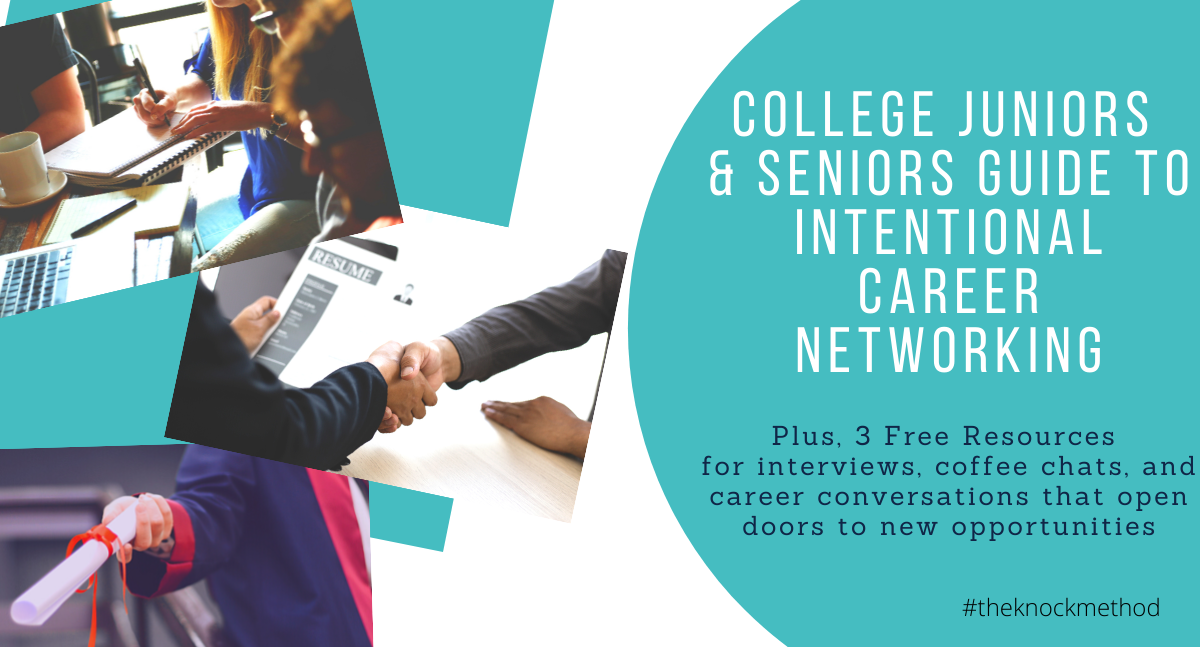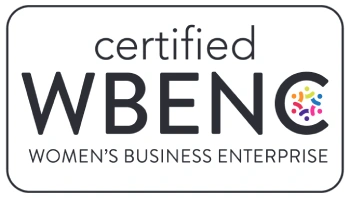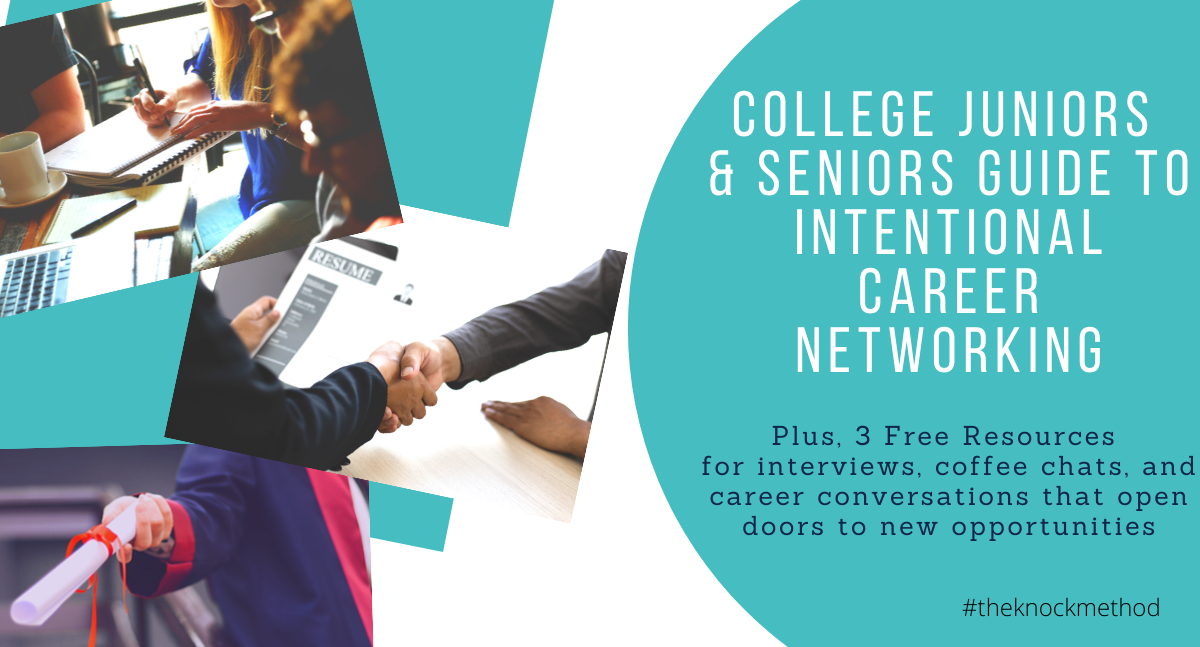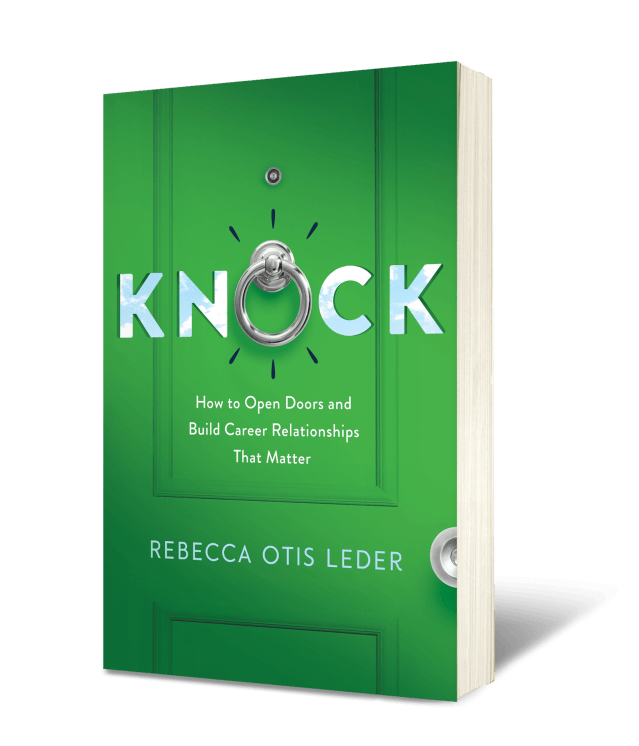As college and university students go back to school this Fall, you’re also likely gearing up for conversations, interview prep, and the job search as you take the first steps in your career.
My first job out of college came about because a classmate referred me to a company he worked with for an internship my senior year. I was so grateful to my classmate for his generosity that not only opened the door to an internship, it also landed me that first job!
Whether you’re looking to have an informational interview with a family friend or neighbor in the industry you’re hoping to go into, you’d like to have a virtual coffee with someone you met at a career fair or found on Linkedin while doing your job research, or you’re simply looking for where to start networking to set direction for your career, you’ve come to the right place!
This free guide to intentional career networking and for college junior and senior students getting ready to begin their careers will walk you through my model: B-D-A, which stands for Before, During, and After you connect with career contacts:
Before: How can you be as prepared as possible before you even reach out to someone to connect about a career conversation? Use the resource provided to answer questions about a career contact or employer ahead of time to make the most of your time when you finally meet.
During: How do you connect intentionally and thoughtfully with others now, and later on in your career? Preparation is key, so using the provided list of 50 Informational Interview Questions for the job search or career chats will help guide the conversation and ensure it’s valuable for the person you’re meeting with too! You not only want to be worth their time, but ideally, your conversation is memorable, stands out, and opens the door to a mutually beneficial long-term relationship.
After: The best thing you can do to turn a one-time interaction into a long term, mutually-beneficial career relationship is keep the conversation going! Follow ups are key. Thank you notes make career contacts feel appreciated and help you recap your conversation (this can serve as a record for what you talked about for next time). Follow ups after a career conversation are your opportunity to follow up with details or information they asked for when you met. This is also a way to “fill up your commonality cup”, as you begin to collect common experiences where you provide mutual value to each other over time.
The B-D-A model and 3 free resources in this guide are a part of The Knock Method®, a research-backed career development curriculum developed by Rebecca Otis Leder, the author of KNOCK: How to Open Doors and Build Career Relationships that Matter.
Looking for more free college career development resources?
> Check out upcoming workshops and events to learn the full method, or request a workshop for your student group, university career services, or team at work.
> Join The Knock Method Linkedin Group to connect with likeminded professionals, ask questions, and get support for your upcoming interviews and job search.
> Get more Free Career Networking Resources like ‘The Knock Method Honor Code’ for building respectful professional relationships, and a ‘Career Mentoring Honor Code’ to ensure a successful and impactful mutually valuable mentoring relationship in your career.
> Get your own copy of KNOCK: How to Open Doors and Build Career Relationships that Matter, the bestselling career development book based on The Knock Method.
Here’s what students have to say about KNOCK:
“[The Knock Method] really opened my eyes into what I want to do as a career.” – The Knock Method workshop participant
“KNOCK is one of my go-to resources for professional networking.”
– College student reader
“As a college student, reaching out to professionals can be an intimidating task. KNOCK walks you through the key steps to building successful long-term relationships that add value to both your life and others’ lives. I have a new level of confidence when meeting with new professionals and networking with potential employers.” – College student reader




